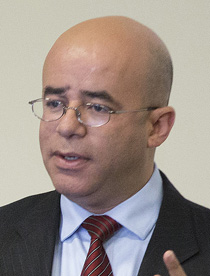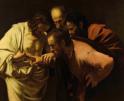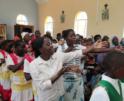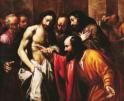
Faith

... I want to know what our own Catholic young women and men are saying, what they need and how we should better accompany them on their faith journeys.

Ospino
The wheels have been in motion for more than a year in preparation for the October 2018 synod. Bishops, observers and other voices from around the world will gather to reflect about "Young people, faith and vocational discernment." This is definitely a most timely conversation.
The Vatican released in June a questionnaire that aims at taking the pulse of various realities shaping the lives of young Catholics. The 53 questions range all the way from basic demographic information to perspectives about life, relationships, politics and faith. A rather ambitious questionnaire, indeed!
The results of the questionnaire will be helpful to write the working document to ground the conversation among the bishops and others attending the synod. However, it seems that the primary beneficiaries of such process of data collection should be dioceses and parishes. Like politics, to paraphrase a popular expression, all ministry is local.
Will the information received in the context of each diocese be available to local leaders so they can study it and act upon it? I hope it is.
Learning about young Catholics in Europe, Africa and Latin America can be very interesting. As a theologian and a researcher, I will definitely be paying close attention to this exercise. However, living in the United States, I want to know what our own Catholic young women and men are saying, what they need and how we should better accompany them on their faith journeys.
Is a questionnaire enough to learn what we need to learn about young Catholics in the United States? Well, questionnaires are valuable tools, but we should not limit our imagination. Dioceses and parishes should intentionally find every possible way to listen to their own young people, and do so humbly and attentively.
In our culturally diverse church, we have an obligation to listen attentively to young people of all backgrounds. I want to make a special case for really listening to young Hispanic Catholics.
Take all U.S. Catholics younger than 18: about 60 percent are Hispanic. The synod organization is focusing on young people ages 16 to 29. This roughly encompasses the so-called millennial population. In the U.S., nearly half of all Catholic millennials are Hispanic (about 46 percent).
Regardless of how one defines youth, any conversation about how young Catholics live their faith and discern their vocation in our country needs to seriously pay attention to young Hispanics.
One major concern is that most young Hispanic Catholics are practically invisible to many of our pastoral outreach efforts in parishes and dioceses. Only a tiny fraction of this population attends Catholic schools.
An even smaller group is present in Catholic colleges. The vast majority of young Hispanic Catholics benefit from neither youth ministry nor catechetical programs.
To really listen to young Hispanic Catholics -- about half of all young U.S. Catholics -- we need to do much more than rely on online questionnaires. We need to go out to the peripheries where they live. We need to reach out.
Three practical suggestions. One, ensure that all local teams and reflection efforts related to the theme of this synod have Hispanic voices and make their concerns a priority.
Two, become familiar with the work of the National Catholic Network de Pastoral Juvenil Hispana: La RED (www.laredpjh.org) and the Fifth National Encuentro of Hispanic/Latino Ministry (vencuentro.org).
Three, should not at least half of the voices attending the synod representing the U.S. be Hispanic or people evidently familiar with the realities that shape the lives of young Hispanics? Representing our current demographics in local and global conversations would prophetically convey that we understand who we are.
- - -
Por más de un año han avanzado los preparativos para el sínodo que tendrá lugar en octubre del 2018. Obispos, observadores y otras voces de varias partes del mundo se reunirán para reflexionar sobre "los jóvenes, la fe y el discernimiento vocacional". Éste es el momento propicio para dicha conversación.
En junio el Vaticano distribuyó un cuestionario que busca tomar el pulso de las varias realidades que afectan las vidas de los jóvenes católicos. Sus 53 preguntas buscan colectar información que va desde datos demográficos básicos hasta perspectivas sobre la vida, las relaciones, actitudes políticas y la fe. ¡Ciertamente es un cuestionario un tanto ambicioso!
Los resultados del cuestionario servirán como base para ayudar a redactar el documento de trabajo que iluminará la conversación entre los obispos y otros participantes en el sínodo. Sin embargo, es posible prever que los beneficiarios más inmediatos de tal proceso de colección de información sean las diócesis y las parroquias. Como en el caso de la política, según reza una expresión popular, toda acción pastoral es local.
¿Recibirán los líderes pastorales a nivel local la información que se recoja en el contexto de cada diócesis para así estudiarla y luego tomar medidas de acción? Espero que tal sea el caso.
Conocer sobre la realidad de los jóvenes católicos en Europa, África y América Latina puede ser muy interesante. Como teólogo e investigador, ciertamente pondré atención a este ejercicio. Sin embargo, viviendo en los Estados Unidos quiero saber qué es lo que nuestros propios jóvenes católicos dicen, qué necesitan y cómo les debemos acompañar mejor en sus itinerarios de fe.
¿Puede un cuestionario identificar suficientemente lo que necesitamos saber sobre los jóvenes católicos en los Estados Unidos? Bueno, los cuestionarios son instrumentos que ayudan mucho, pero no deben limitar nuestra imaginación. Las diócesis y las parroquias en el país deben hacer todo lo posible para escuchar a sus propios jóvenes, y hacer esto de manera humilde y atenta.
En medio de la diversidad cultural que define a nuestra iglesia, tenemos la obligación de escuchar atentamente a los jóvenes de todo grupo cultural, racial y étnico. Quisiera enfatizar en particular la urgencia de escuchar a los jóvenes católicos hispanos.
De todos los jóvenes católicos estadounidenses menores de 18 años, aproximadamente el 60 por ciento son hispanos. La organización del sínodo se está enfocando en jóvenes entres las edades de 16 a 29 años. Básicamente este es el grupo que conocemos como los "millennials". En los Estados Unidos, cerca de la mitad de los católicos de la generación del milenio son hispanos (aproximadamente el 46 por ciento).
Aunque hay varias maneras de referirnos a los jóvenes, lo importante es que cualquier conversación sobre los jóvenes católicos en nuestro país necesita poner atención seriamente a los jóvenes hispanos.
Una gran preocupación es el hecho de que la mayoría de los jóvenes católicos hispanos son prácticamente invisibles en muchos de los esfuerzos y estructuras pastorales tanto en parroquias como en diócesis. Tan sólo una fracción de esta población va a escuelas católicas.
Un grupo aún más pequeño estudia en universidades católicas. La gran mayoría de los jóvenes católicos hispanos no se beneficia ni de programas de pastoral juvenil ni de programas catequéticos.
Para escuchar de verdad a los jóvenes católicos hispanos -- cerca de la mitad de todos los jóvenes católicos estadounidenses -- necesitamos hacer mucho más que depender de cuestionarios en línea. Necesitamos ir a las periferias en donde ellos viven. Necesitamos buscarlos.
Tres sugerencias prácticas. Primero, asegurémonos de que todos los equipos locales y todo esfuerzo de reflexión asociado con el tema de este sínodo incorpore voces hispanas y afirme las necesidades de los jóvenes hispanos como asuntos prioritarios.
Segundo, familiaricémonos con el trabajo de La RED Nacional de Pastoral Juvenil Hispana (www.laredpjh.org) y el Quinto Encuentro Nacional de Pastoral Hispana/Latina (vencuentro.org).
Tercero, ¿no debería al menos la mitad de los participantes representando a los Estados Unidos en el sínodo ser hispanos o personas que de manera evidente estén familiarizados con las realidades que afectan las vidas de los jóvenes hispanos? Una representación que refleje los rostros actuales de nuestros jóvenes en conversaciones locales y globales señalaría proféticamente que de verdad entendemos quiénes somos.
- - -
Ospino is professor of theology and religious education at Boston College. He is a member of the leadership team for the Fifth National Encuentro of Hispanic/Latino Ministry.
Ospino es profesor de teología y educación religiosa en Boston College. Es miembro del equipo de liderazgo del Quinto Encuentro Nacional de Pastoral Hispana/Latina.
- Hosffman Ospino is assistant professor of theology and religious education at Boston College's School of Theology and Ministry.
Recent articles in the Faith & Family section
-
Wounds, not scarsJaymie Stuart Wolfe
-
A special collection in the liturgy libraryFather Robert M. O'Grady
-
Witness to a Transfiguration in KenyaMichele Miers
-
Understanding the ScripturesScott Hahn
-
'Cabrini' does extraordinary job of bringing saint to lifeBishop Nicholas DiMarzio


















